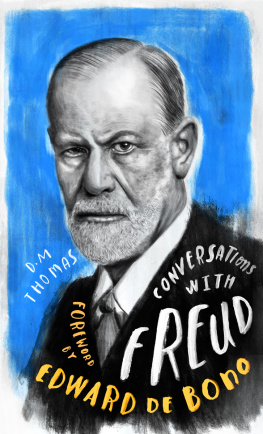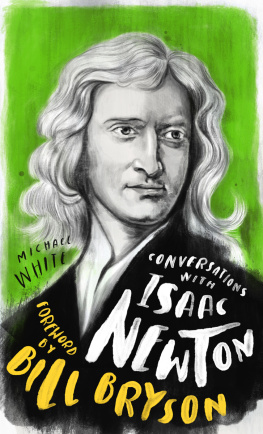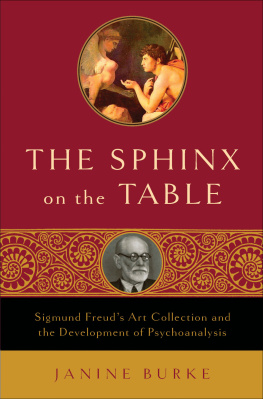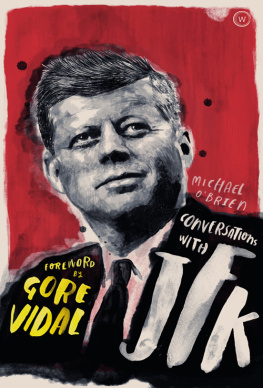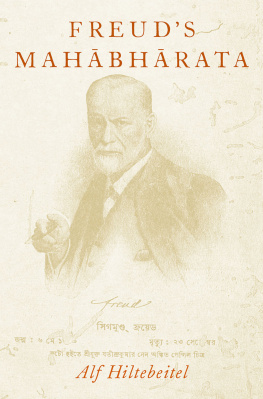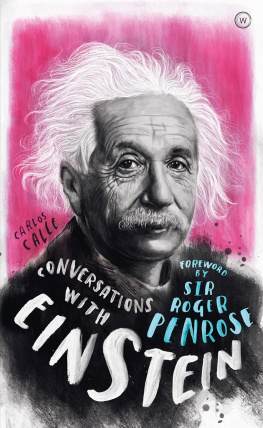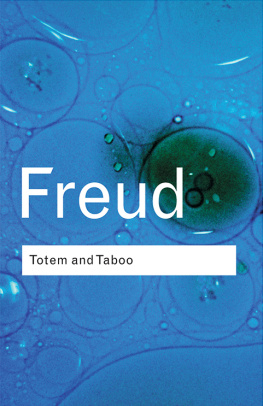

Note to the Reader : This book is divided into two parts: a biographical essay that provides a concise overview of Freuds life and achievements and a fictional dialogue based on rigorous research, incorporating Freuds actual spoken or written words, whenever possible, along with rigorously research biographical interpretations of his various views and positions.
Learn about key figures in science, spirituality, art and literature through revealing dialogues based on established fact. Written by a fantastic collection of authors and foreword writers gathered together to delve into the lives and achievements of some of the worlds greatest historical figures, this series is perfect for anyone looking for a quick and accessible introduction to the subject.
OTHER TITLES IN THE SERIES
Published
Conversations with JFK by Michael OBrien;
Foreword by Gore Vidal
Conversations with Oscar Wilde by Merlin Holland;
Foreword by Simon Callow
Conversations with Casanova by Derek Parker;
Foreword by Dita Von Teese
Conversations with Buddha by Joan Duncan Oliver;
Foreword by Annie Lennox
Conversations with Dickens by Paul Schlicke;
Foreword by Peter Ackroyd
Conversations with Galileo by William Shea;
Foreword by Dava Sobel
Forthcoming
Conversations with Einstein by Carlos I. Calle;
Foreword by Sir Roger Penrose
Conversations with Isaac Newton by Michael White;
Foreword by Bill Bryson

Originally published under the title Coffee with Freud 2009
This edition first published in the UK and USA 2020 by
Watkins, an imprint of Watkins Media Limited
Unit 11, Shepperton House
8993 Shepperton Road
London
N1 3DF
Design and typography copyright Watkins Media Limited 2020
Text copyright D M Thomas 2009, 2020
Foreword copyright Edward de Bono 2009, 2020
D M Thomas has asserted his right under the Copyright, Designs and Patents Act 1988 to be identified as the author of this work.
All rights reserved.
No part of this book may be reproduced or utilized in any form or by any means, electronic or mechanical, without prior permission in writing from the Publishers.
10 9 8 7 6 5 4 3 2 1
Typeset by JCS Publishing Services Ltd
Printed and bound by TJ International Ltd, Padstow, Cornwall
A CIP record for this book is available from the British Library
ISBN: 978-1-78678-386-8
www.watkinspublishing.com
Publishers note: The interviews in this book are purely fictional, while having a solid basis in biographical fact. They take place between a fictionalized Sigmund Freud and the author, D.M. Thomas. This literary work has not been approved or endorsed by the Freud estate.
CONTENTS
FOREWORD BY EDWARD DE BONO
The human brain craves explanations. That is why very young children are always asking why? Explanations tie things together. They explain why things happen and also allow us to predict future behaviour.
Throughout history, people have searched for such explanations in order to make sense of their lives. First there was magic and religion to explain how things were organized, then there was science and its disengaged laws, and somewhere in between these two was Freud. Just as Voltaire said of God, if Freud had not existed it would have been necessary to invent him.
Freuds whole edifice was a masterwork of explanation, with sex at its core. He studied his own, often depressed, mind as well as those of his patients, accounting for our actions and troubled thoughts with revolutionary theories such as infant sexuality, sublimation, the symbolism of dreams and the Oedipus complex. He believed that if something was not as visible in a patients personality as it should have been, that was because it was too painful and had to be repressed. A strange symptom, such as a nervous tic or a cough, might really be a displacement for the memory of a far more taboo experience or emotion. Hysterics suffer mainly from reminiscences, as he and Joseph Breuer famously concluded.
These theories shocked, troubled and intrigued people, and ensured Freud a central role in psychology. Were they true in the scientific sense? Possibly, in some cases. Perhaps not in others. Before the sex hormones sensitize various nerve pathways at puberty, it is hard to see how sex could operate in infants and children. It might have been more accurate to talk of pleasure and love rather than sex however, that would only have weakened Freuds explanations. The truth in his work is not really what matters. It was as much poetry as science: his theories created stories that people could believe in. These stories had a real value in allowing a patient to understand his or her behaviour or symptoms, and as a result of such understanding things often did get better.
Like it or not, Freud remains an inescapable influence on the way we think about ourselves, and each other, today. We should consider him the master explainer, a phenomenon placed somewhere between poetry and science, and between psychology and magic.

INTRODUCTION
I am often asked, Why Freud? Why are you so fascinated by him? The fascination is certainly there: in two of my novels, The White Hotel and Eating Pavlova , he is a major character and narrator. How could I resist an invitation to have coffee meetings with him in the timeless unconscious, at a splendid caf where one can still smoke?
Often reviled as a sex-crazed fantasist when he founded psychoanalysis, he is attacked by many once again, a century later. He is accused of intellectual dishonesty, undervaluing women, and overvaluing both his theories and the effectiveness of psychoanalysis. Even if his ideas had some validity in the patriarchal bourgeois Vienna of 1900, critics say, they dont apply in our fluid, multicultural, post-feminist society.
There is a grain of truth in all these criticisms except that of intellectual dishonesty. We all sometimes deceive ourselves Freud less than most but being truthful was his greatest pride. In his maturity, he saw psychoanalysis as ministering to the soul (psyche), mans whole essence, not just his mind. Fascinated by archaeology, he was an archaeologist of the unconscious, whom we ignore at our peril.
The psyche as Freud saw it was profoundly poetry-making, constantly creating by metaphor and symbol; and that strikes me as both true and inspiring unlike our ages model of the mind as a computer. Freuds eternal Eros has been tamed by sexologists and mechanistic porn, and infantilized by sex toys and talk of blow jobs. Many who are hostile to him are repressing uncomfortable truths about themselves, preferring to seek answers to problems in sociology or politics. Freud faced his own demons, fearlessly, and wished us to face ours.
Even if his model of the psyche should prove to be more of a rich poetic metaphor than scientifically accurate, it will not lessen his greatness. He is more illuminating when wrong than others when they are right, for he has the wisdom of the ages to call on. He drew inspiration from ancient myths and loved the great writers, such as Shakespeare and Dostoyevsky, who he said had discovered the unconscious before him. Despotic at times, he was nevertheless a liberator. Diana Hume George, author of Blake & Freud , quotes, No individual can keep these Laws, for they are death / to every energy of man, and asks whether, but for the line-break, any scholar would know this was William Blake writing, not Freud. They both wanted to free men and women from their chains, their mind-forged manacles. Though conservative in his views on womens rights, he gave dignity to women by treating them as sexual beings.
Next page
